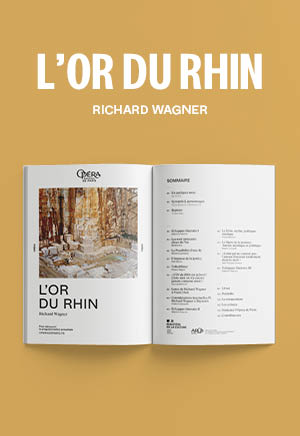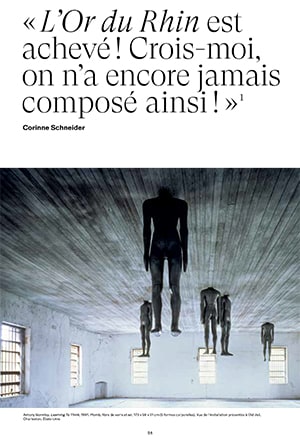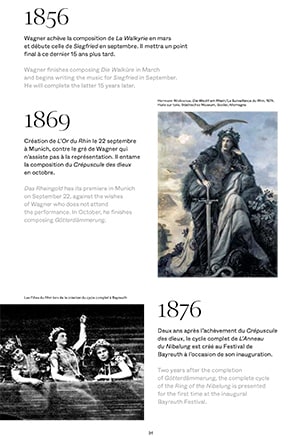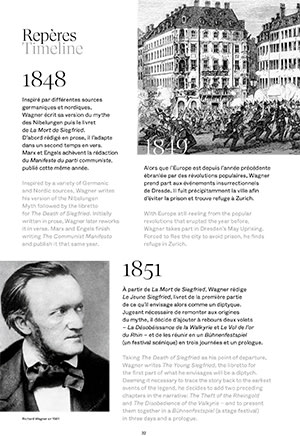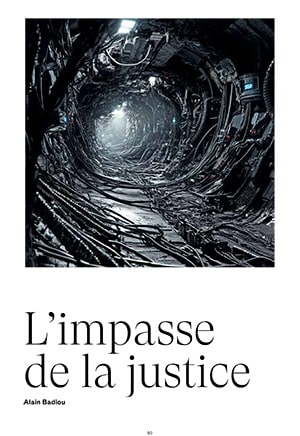Synopsis
Listen to the synopsis
Unique in the history of opera, The Ring of the Nibelung is the colossal tetralogy Richard Wagner worked on for thirty years. First performed in 1869, the Prologue The Rhinegold unveils from its first telluric chord a world riddled with existential questions. Who will obtain the power of the ring forged from the gold of the Rhine? The gods, the giants or the Nibelungen?
Borrowing from Norse and Germanic mythology, Wagner conceived an extraordinary cycle that reflected his innovative ambition: to create a total work of art inspired by ancient tragedy. As well as revolutionising the art of opera, he also devised theatrical material open to multiple interpretations.
Director Calixto Bieito places The Rhinegold in a context dominated by digital virtuality and questions the impact of technology and science on human beings.
Duration : 2h30 no interval
Language : German
Surtitle : French / English
-
Opening
-
First part 150 min
-
End
Artists
Prologue in four scenes to "Der Ring des Nibelungen" (1869)
Creative team
Cast
The Paris Opera Orchestra
Broadcast on France Musique: Saturday 15 March at 8pm
Media
Access and services
Opéra Bastille
Place de la Bastille
75012 Paris
Public transport
Underground Bastille (lignes 1, 5 et 8), Gare de Lyon (RER)
Bus 29, 69, 76, 86, 87, 91, N01, N02, N11, N16
Calculate my routeCar park
Parking Indigo Opéra Bastille 1 avenue Daumesnil 75012 Paris
Book your spot at a reduced price-
Cloakrooms
Free cloakrooms are at your disposal. The comprehensive list of prohibited items is available here.
-
Bars
Reservation of drinks and light refreshments for the intervals is possible online up to 24 hours prior to your visit, or at the bars before each performance.
-
Parking
You can park your car at the Indigo Opéra Bastille. It is located at 1 avenue Daumesnil, 75012 Paris.
In both our venues, discounted tickets are sold at the box offices from 30 minutes before the show:
- €35 tickets for under-28s, unemployed people (with documentary proof less than 3 months old) and senior citizens over 65 with non-taxable income (proof of tax exemption for the current year required)
- €70 tickets for senior citizens over 65
Get samples of the operas and ballets at the Paris Opera gift shops: programmes, books, recordings, and also stationery, jewellery, shirts, homeware and honey from Paris Opera.
Opéra Bastille
- Open 1h before performances and until performances end
- Get in from within the theatre’s public areas
- For more information: +33 1 40 01 17 82
Online
Opéra Bastille
Place de la Bastille
75012 Paris
Public transport
Underground Bastille (lignes 1, 5 et 8), Gare de Lyon (RER)
Bus 29, 69, 76, 86, 87, 91, N01, N02, N11, N16
Calculate my routeCar park
Parking Indigo Opéra Bastille 1 avenue Daumesnil 75012 Paris
Book your spot at a reduced price-
Cloakrooms
Free cloakrooms are at your disposal. The comprehensive list of prohibited items is available here.
-
Bars
Reservation of drinks and light refreshments for the intervals is possible online up to 24 hours prior to your visit, or at the bars before each performance.
-
Parking
You can park your car at the Indigo Opéra Bastille. It is located at 1 avenue Daumesnil, 75012 Paris.
In both our venues, discounted tickets are sold at the box offices from 30 minutes before the show:
- €35 tickets for under-28s, unemployed people (with documentary proof less than 3 months old) and senior citizens over 65 with non-taxable income (proof of tax exemption for the current year required)
- €70 tickets for senior citizens over 65
Get samples of the operas and ballets at the Paris Opera gift shops: programmes, books, recordings, and also stationery, jewellery, shirts, homeware and honey from Paris Opera.
Opéra Bastille
- Open 1h before performances and until performances end
- Get in from within the theatre’s public areas
- For more information: +33 1 40 01 17 82
Online

Discover opera and ballet in another way

Dive into the Opera world and get insights on opera and pop culture or ballet and cinema. Scan this code to access all the quiz and blindtests on your mobile.

4 min
Das Rheingold
Das Rheingold, the true/false story
A river, a legend and a treasure… Can you untangle this true/false synopsis of Der Ring des Nibelungen’s prologue by Wagner?
DiscoverYou will also like
Partners
-
Grande Mécène de la saison
-
With the exceptional support of Bertrand and Nathalie Ferrier, Élisabeth and Bertrand Meunier
-
Sponsor of the Paris Opera's activities for young people
-
Avant-premières partner






















































































